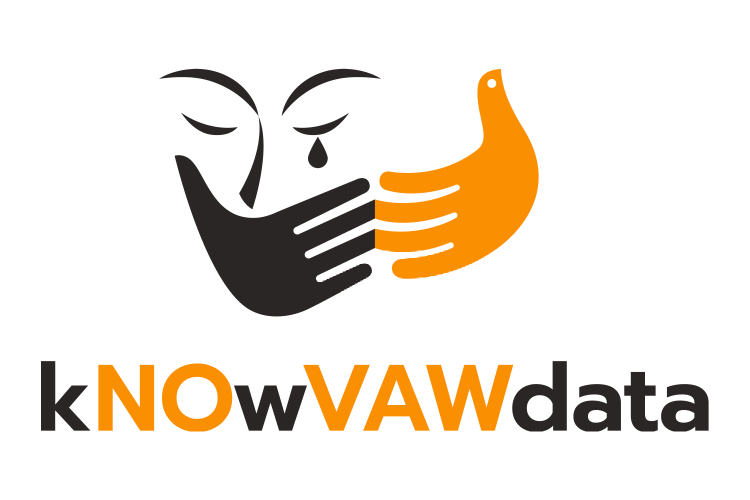Knowledge Hub

The Knowledge Hub provides links to resources supporting the measurement of violence against women and has been funded under the Pacific Spotlight Initiative. While starting with a primary focus on Pacific resources and global resources which are applicable for the Pacific region, the Knowledge Hub will continue under the UNFPA kNOwVAWdata initiative to support global knowledge exchange and a strong community of practice. The strength of this Knowledge Hub is the opportunity to share resources and support all regions of the globe.
If you would like to share links to be added to the Knowledge Hub, please send them to knowvaw-program@unimelb.edu.au.
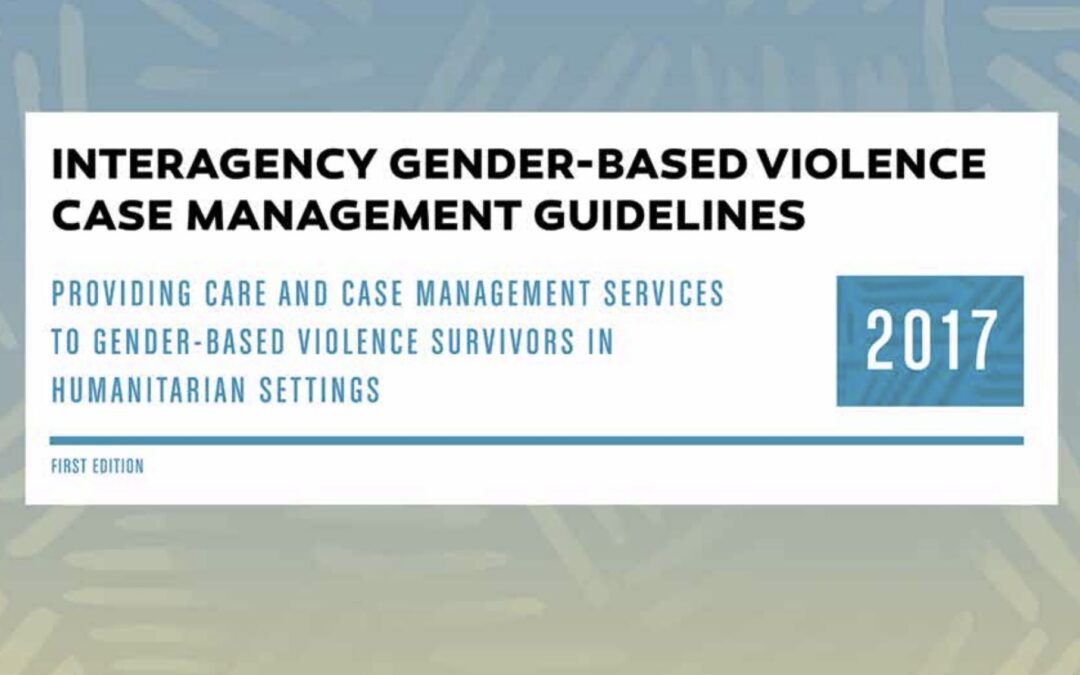
Interagency Gender-based Violence Case Management Guidelines: Providing care and case management services to gender-based violence survivors in humanitarian settings
This resource aims to set standards for quality, compassionate care for GBV survivors in humanitarian settings, with particular focus on the provision of case management services. It builds upon and should be used in conjunction with other GBV response resources, such as the Caring for Survivors of Sexual Violence in Emergencies Training Package and the Caring for Child Survivors of Sexual Abuse: Guidelines for health and psychosocial service providers in humanitarian settings.

UNICEF Communities Care Programme: Somalia Impact Evaluation
The United Nations Children’s Fund (UNICEF) Communities Care: Transforming Lives and Preventing Violence programme is a community-based model for preventing and responding to sexual violence against girls and women in conflict-affected settings. The programme is premised on the idea that while armed conflict causes horrendous suffering for those affected, the disruption it causes may also present an opportunity for positive change in social norms that can contribute to gender equality and...

UNICEF Communities Care Programme: South Sudan Impact Evaluation
The United Nations Children’s Fund (UNICEF) Communities Care: Transforming Lives and Preventing Violence programme is a community-based model for preventing and responding to sexual violence against girls and women in conflict-affected settings. The programme is premised on the idea that while armed conflict causes horrendous suffering for those affected, the disruption it causes may also present an opportunity for positive change in social norms that can contribute to gender equality and...
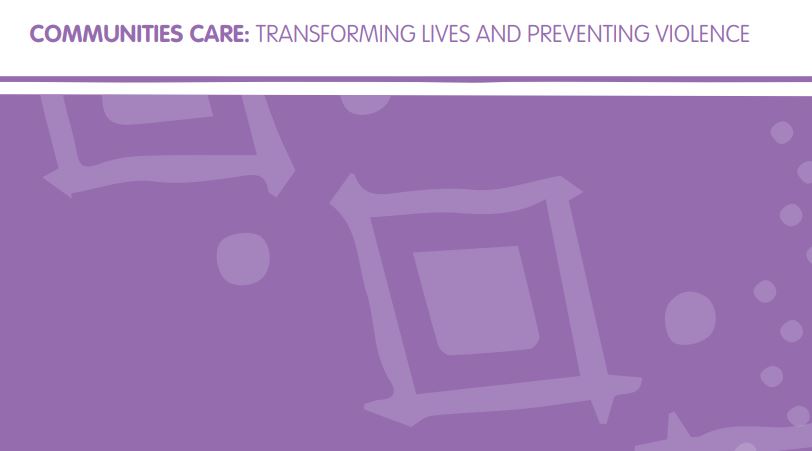
Communities Care: Transforming Lives and Preventing Violence Programme
UNICEF developed the Communities Care: Transforming Lives and Preventing Violence Programme (CC Programme) based on evidence and experience that show that changing collective beliefs and unspoken rules in communities can lead to change in collective practices and behaviours.

Disasters, Crises and Violence Against Women: Evidence from Big Data Analysis – Lessons from Kiribati, Samoa, Solomon Islands and Tonga
Capturing accurate data on violence against women during crises is challenging, with survivors scattered and the confidentiality of their responses at risk. Taking these challenges into account, UN Women's Regional Office in Asia and the Pacific undertook a study harnessing big data from social media searches and posts, to uncover the discourse on VAW.
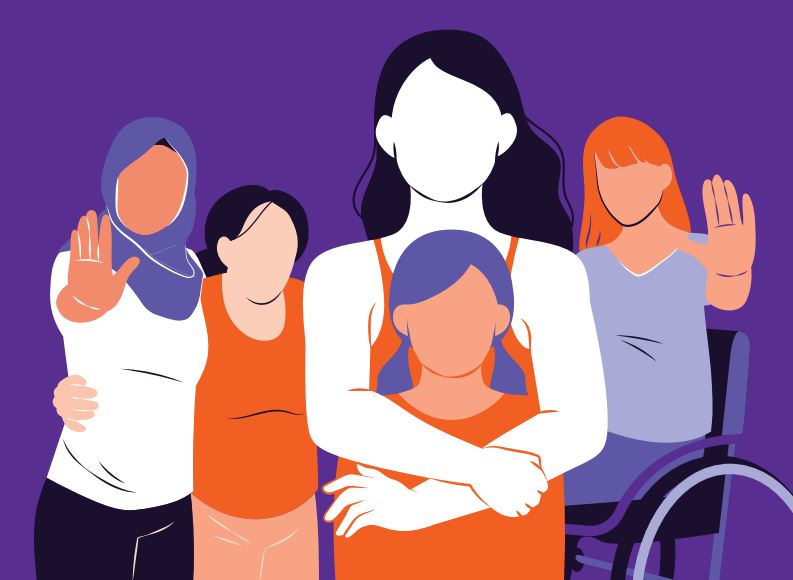
National Study on Violence against Women in Georgia 2022
UN Women teamed up with the National Statistics Office of Georgia (GEOSTAT) to conduct a second nationwide study on violence against women in Georgia in 2022. Building on the initial study in 2017, the 2022 survey significantly expanded its methodology to include additional forms of intimate partner violence, non-partner violence, sexual harassment, stalking, as well as attitudes and social norms related to violence against women. A total of 3,300 women and 1,104 men were interviewed across...
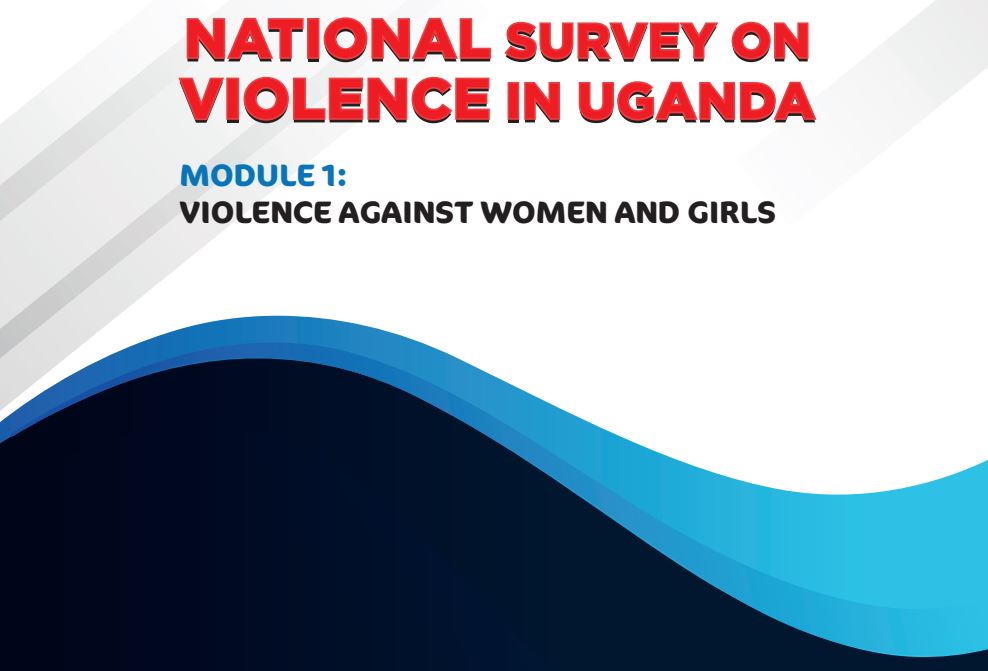
National Survey on Violence in Uganda Module I: Violence Against Women and Girls
The primary objective of the survey on Violence against Women and Girls was to provide up to date estimates of indicators on VAWG. The information collected is intended to assist policy makers and program managers in evaluating and designing programs and strategies for eliminating VAWG in Uganda.
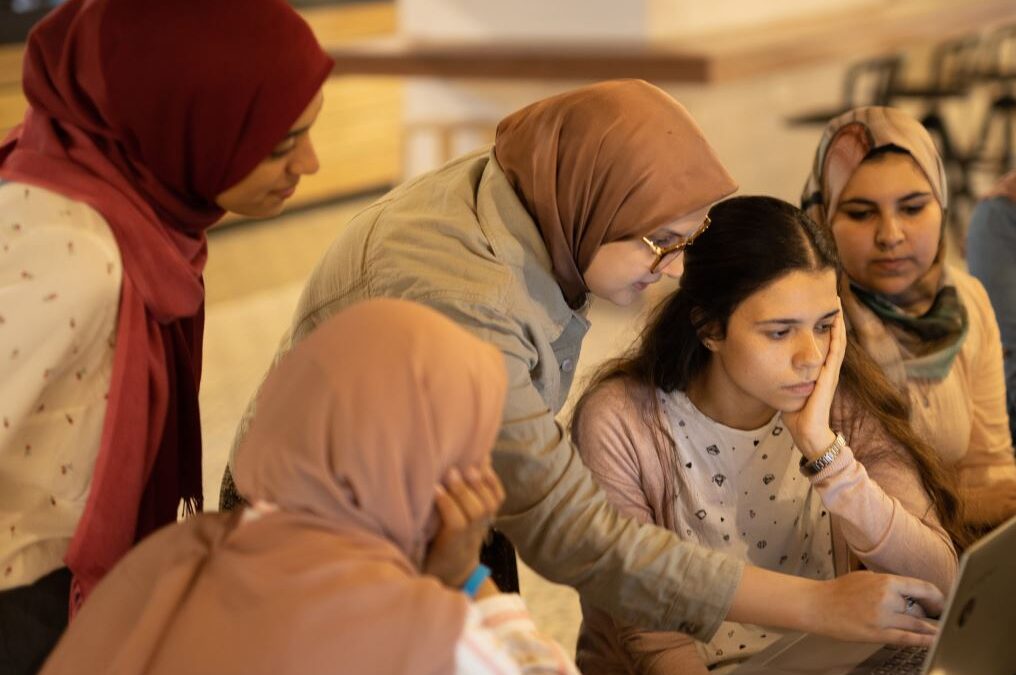
Violence Against Women in the Online Space: Insights from Multi-country Research in the Arab States
To better understand online violence in the Arab States, a subsequent research project explored its prevalence, impact and consequences and the barriers to services and reporting. Three complementary exercises comprised a quantitative web-based survey in eight countries with nearly 12,000 respondents, examining the prevalence, perceptions and implications of online violence; qualitative research to explore experiences of online violence through the lens of civil society organizations, women’s...

Violence Against Women: An EU-wide Survey – Main Results
This report is based on interviews with 42,000 women across the 28 Member States of the European Union (EU). The survey asked women about their experiences of physical, sexual and psychological violence, including incidents of intimate partner violence (‘domestic violence’), and also asked about stalking, sexual harassment, and the role played by new technologies in women’s experiences of abuse. In addition, it asked about their experiences of violence in childhood.

Violence Against Women: An EU-wide Survey – Survey methodology, sample and fieldwork (Technical Report)
This report presents a detailed overview of the research methods used by FRA when collecting survey data on women’s personal experiences of various forms of violence. FRA started to develop the survey through desk research and stakeholder consultations in 2010, followed by a pre-test study in six EU Member States in 2011 to test a draft questionnaire. The full-scale survey in the EU-28 was carried out in 2012.

Children and Young People Bereaved by Domestic Homicide
This brief report conveys key findings from the study “Children and young people bereaved by domestic homicide: Understanding home, relationships and identity,“ with a focus on Australia.
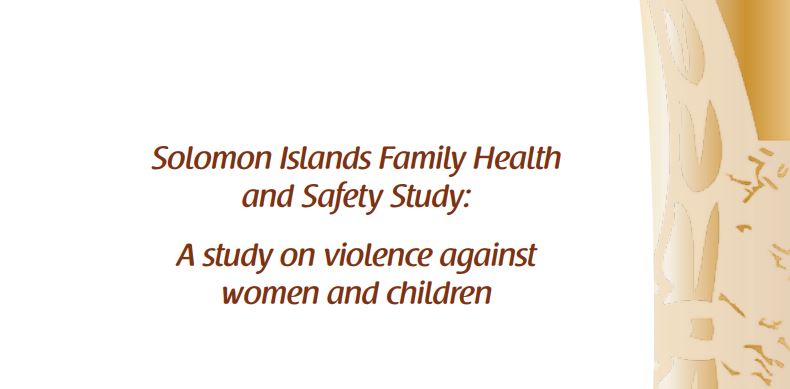
Solomon Islands Family Health and Safety Study
This report of the Solomon Islands Family Health and Safety Study analyzes data from the first nationally representative research on violence against women and children in this country.
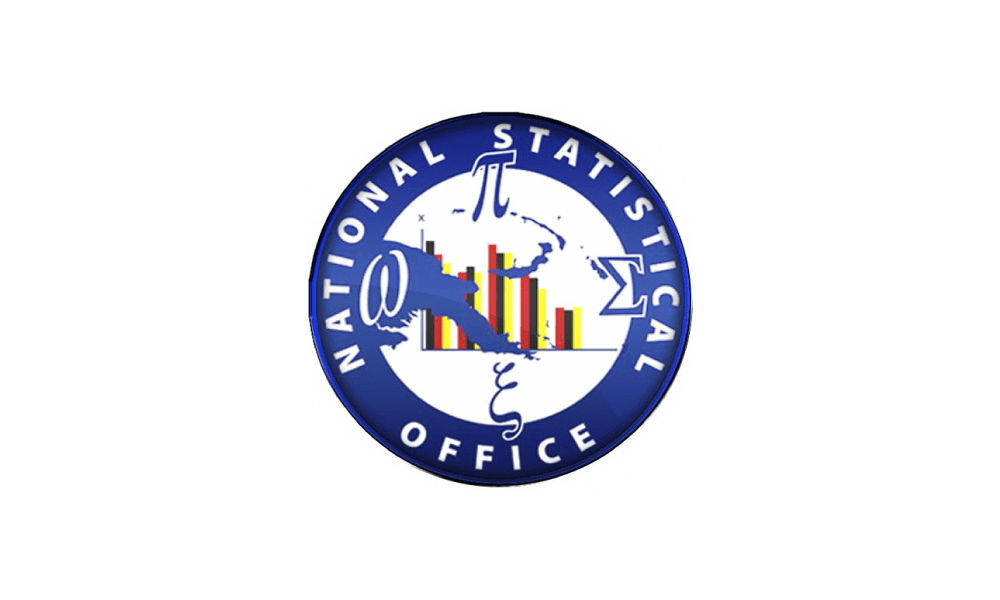
The 2016-18 Papua New Guinea Demographic and Health Survey
The 2016-18 PNG DHS included a module of questions on domestic violence that was administered in the subsample of households selected for the men’s survey. In accordance with the World Health Organization (WHO) guidelines on ethical collection of information on domestic violence, only one eligible woman per household was randomly selected for the module, and the module was not implemented if privacy could not be obtained (WHO 2001). In total, 4,873 women completed the module. One percent of...

Nauru Family Health and Support Study
The Nauru Family Health and Support Study aimed at obtaining reliable information on violence against women (VAW), its characteristics, and consequences. Although the study initially sought to collect a nationally representative sample of women aged 15-64, due to a low response rate, its findings are derived from a reduced sample of eligible women in a small group of districts. The findings of this exploratory study, however, provide a preliminary understanding around VAW in the country and...

Republic of the Marshall Islands National Study on Family Health and Safety
The National Study on Family Health and Safety in the RMI consisted of two separate components: a quantitative study based on the methodology developed for the WHO Multi-Country Study on Women’s Health and Domestic Violence against Women; and a qualitative study based on data collection methods of previous studies.

Belau Family Health and Safety Study National Research Project on Violence Against Women in Palau
The Belau Family Health and Safety Study (FHSS) aimed at obtaining reliable data on the prevalence and types of violence against women (VAW) in Palau. The study also sought to document the associations between partner violence and health issues and other outcomes, as well as to identify risk and protective factors for partner violence.

Federated States of Micronesia Family Health and Safety Study
The FSM Family Health and Safety Study (FHSS) aimed to gauge the prevalence and types of violence against women (VAW) in the FSM. The study also sought to document the associations between partner violence and the wellbeing of the woman and her children, as well as to identify risk and protective factors for partner violence.
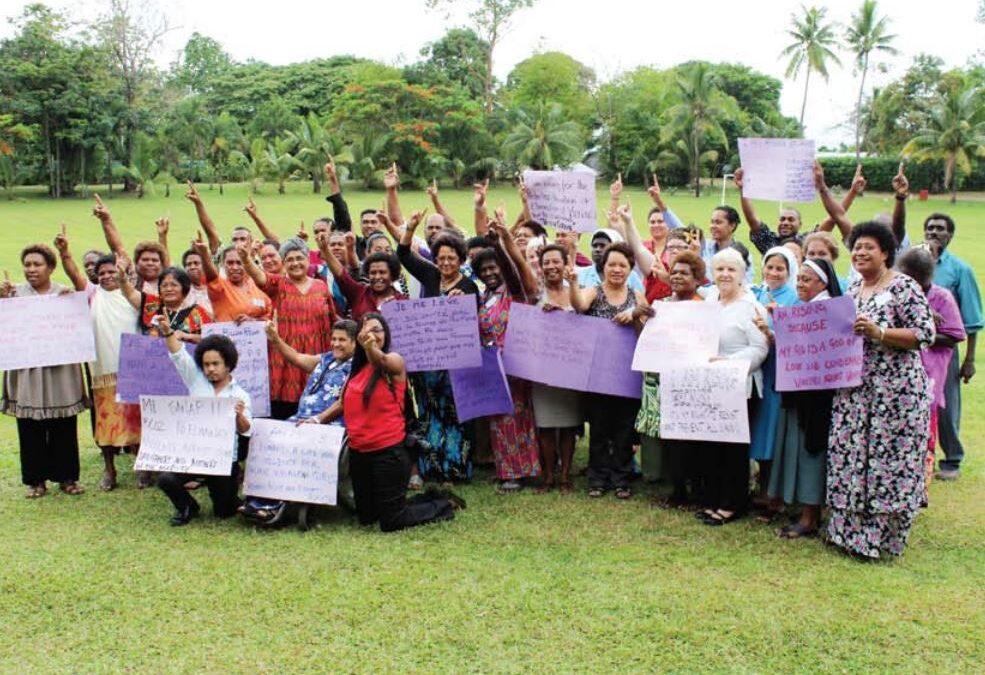
Somebody’s Life, Everybody’s Business! National Research on Women’s Health and Life Experiences in Fiji (2010-2011)
Somebody’s Life, Everybody’s Business is a national research on women’s health and life experiences in Fiji (2010/2011). It is a survey exploring the prevalence, incidence and attitudes to intimate partner violence in Fiji.
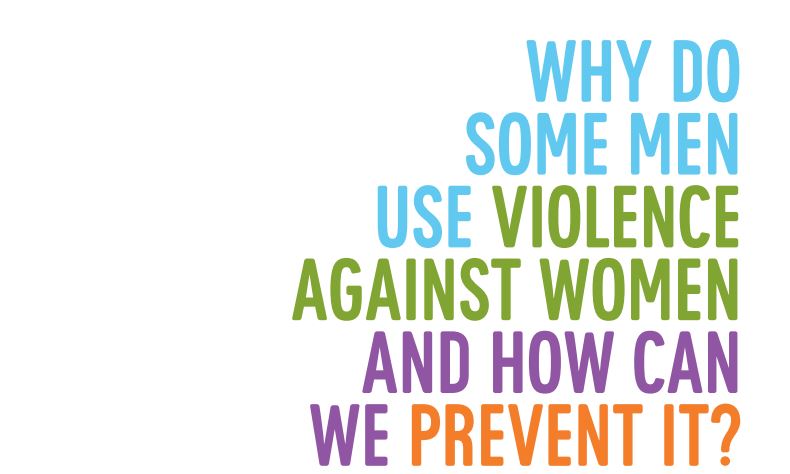
UN Multi Country Study on Men and Violence
A UN study of 10,000 men in Asia and the Pacific found that overall nearly half of those men interviewed reported using physical and/or sexual violence against a female partner, ranging from 26 percent to 80 percent across the sites studied.
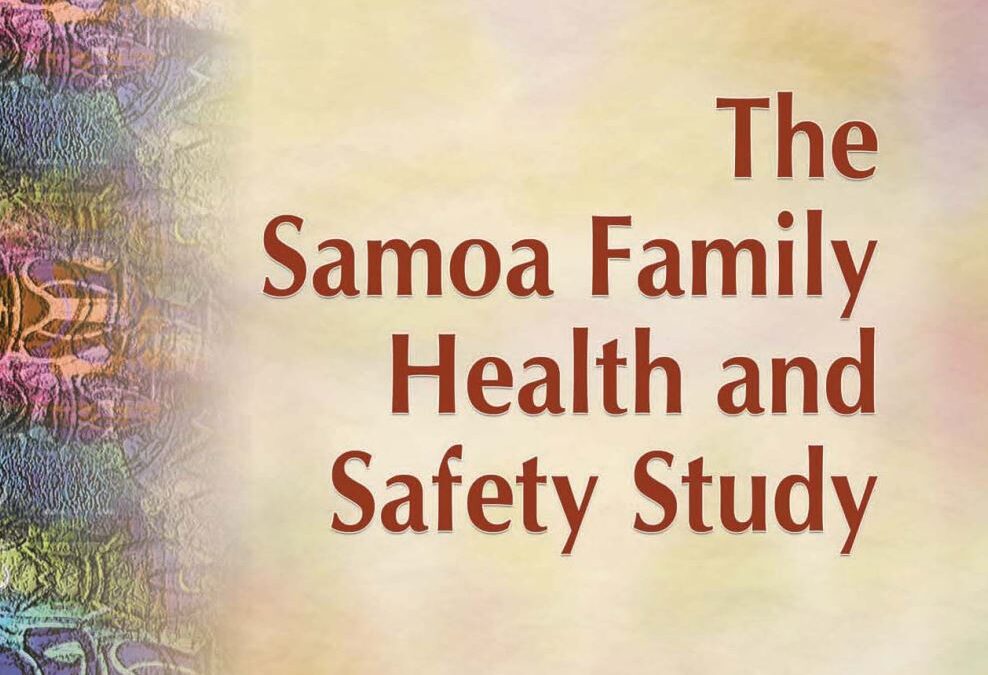
Samoa Family Health and Safety Study
The Samoa Family Health and Safety Study (SFHSS) is a component of the larger Pacific Multi-site Study of the Effects of Violence Against Women on Family Health and Safety, which is a joint research initiative of the Secretariat of the Pacific Community (SPC) and the United Nations Population Fund (UNFPA).
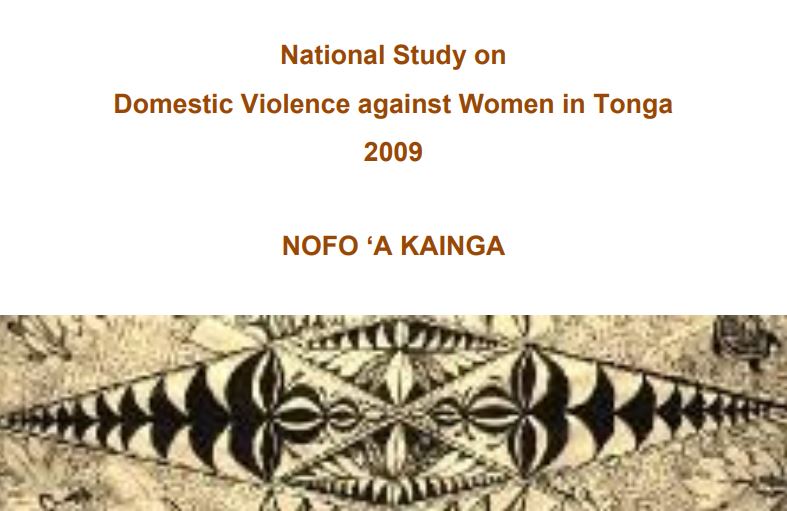
National Study on Domestic Violence on Women in Tonga
The National Study on Domestic Violence against Women in Tonga consisted of two separate components: a quantitative study based on the methodology developed for the WHO Multi-Country Study on Women’s Health and Domestic Violence against Women; and a qualitative study based on Tongan methodology of Talanoa and Nofo. The use of qualitative and quantitative components was to seek results that complemented each other.
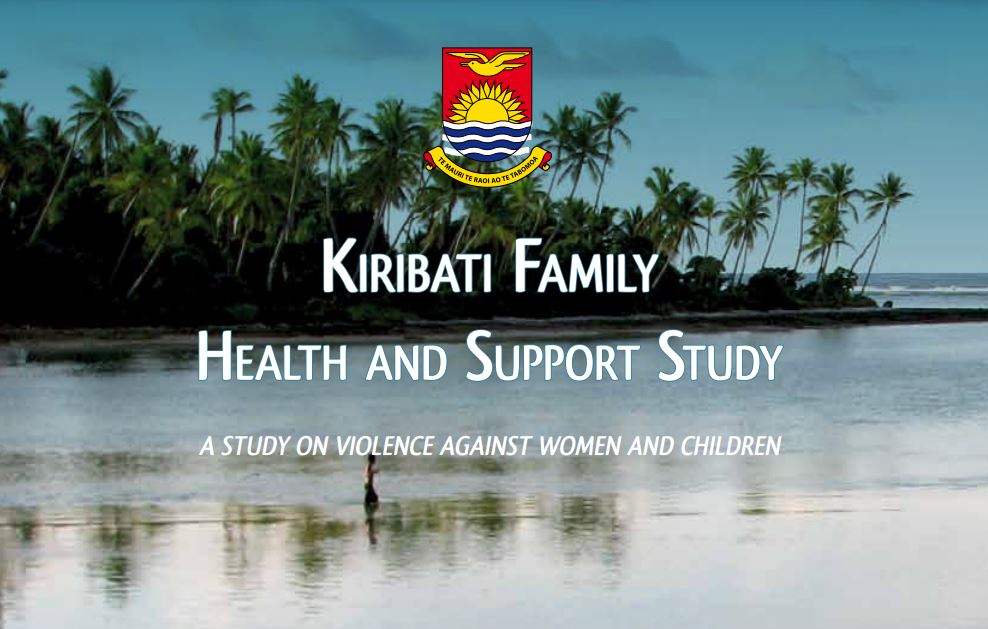
Kiribati Family Health and Support Study
This report of the Kiribati Family Health and Support Study analyses data from the first ever nationally representative child abuse in this country. This study replicates the WHO multi-country study on Women’s Health and Domestic Violence against Women.
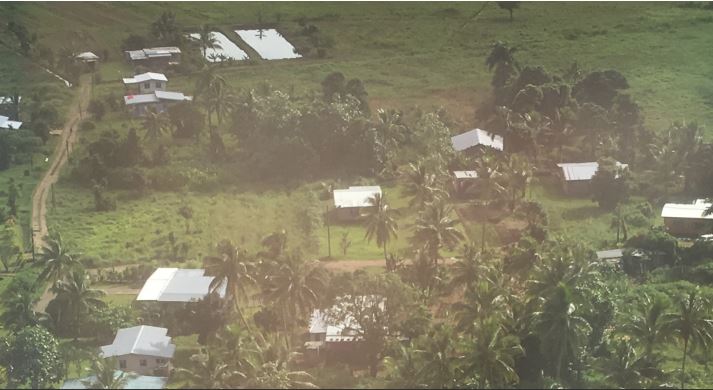
Exploring Multidimensional Poverty in Fiji: Findings from a Study Using the Individual Deprivation Measure
The Individual Deprivation Measure (IDM) is a new, gender sensitive and multidimensional measure of poverty. The measure assesses deprivation at the individual level, in relation to 15 key dimensions of life, making it possible to see who is poor, in what way and to what extent. This study explores what additional insights could be gained by individual-level, gender-sensitive poverty measurement in Fiji

Swimming Against the Tide: Lessons Learned from Field Research on Violence Against Women in the Solomon Islands and Kiribati
Lessons Learned from Field Research on Violence Against Women in the Solomon Islands and Kiribati
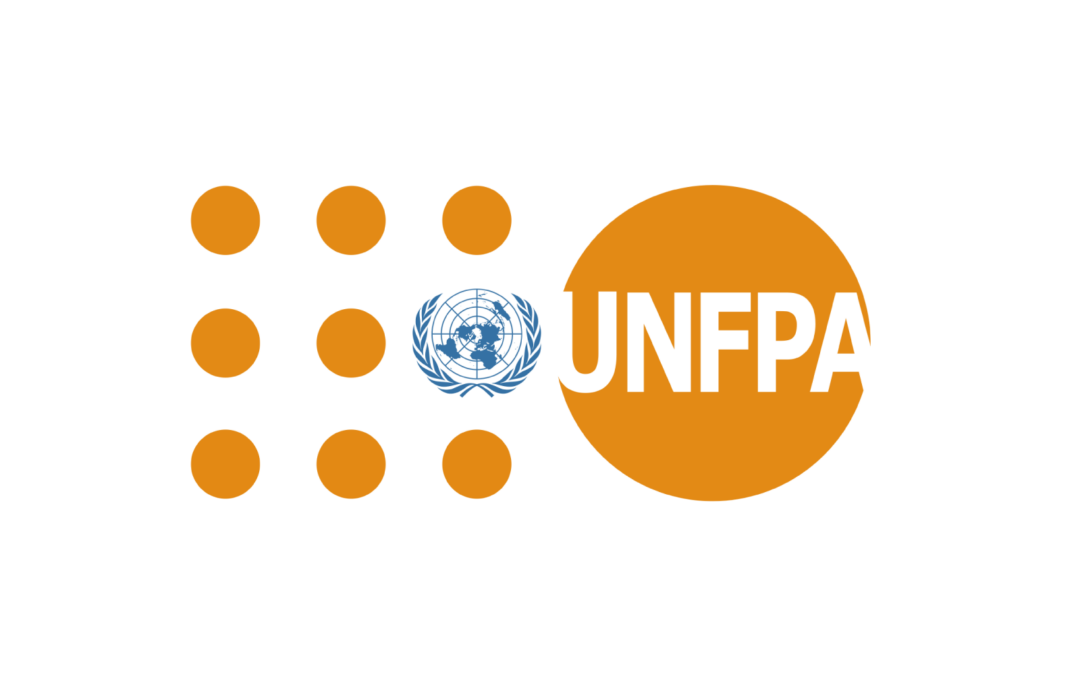
UNFPA Asia Pacific kNOwVAWdata dashboard
Data visualizations and reports from the latest national violence against women prevalence surveys in the Asia-Pacific region; Resources on violence against women data measurement, analysis and uptake; kNOwVAWdata updates; Real-life stories of the brave and compassionate individuals involved in measuring vitally important, nationally representative data on violence against women.
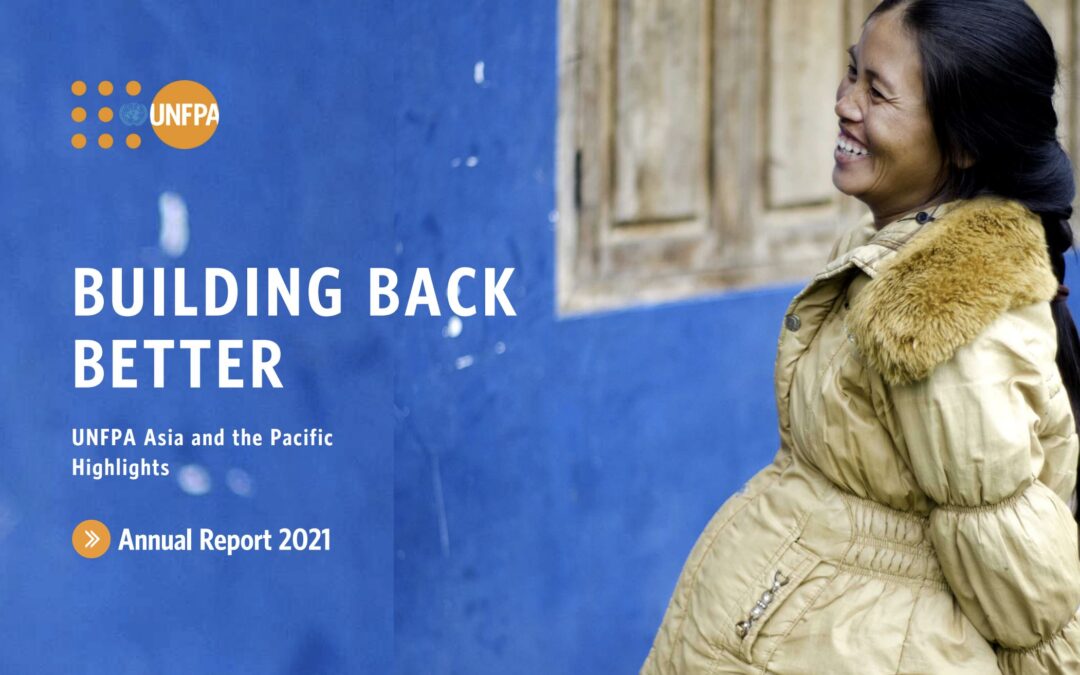
Annual Report 2021: UNFPA Asia and the Pacific
UNFPA across Asia and the Pacific outlining progress towards our transformative results of zero maternal deaths, zero unmet need for family planning, and zero gender-based violence and harmful practices against girls and women.
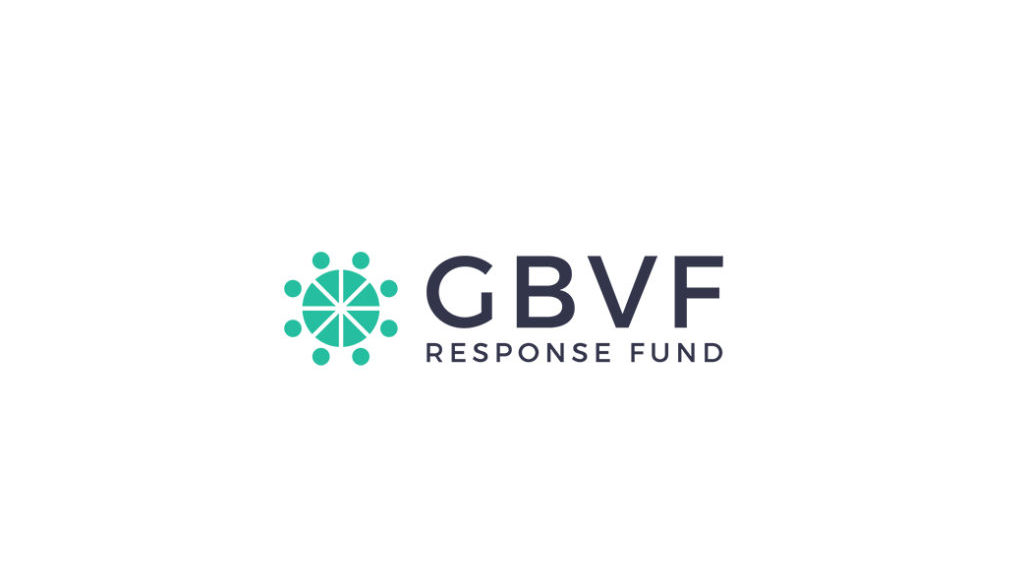
GBVF Statistics Dashboard
This dashboard is a comprehensive visualisation and monitoring tool of available data related to gender-based violence and femicide in South Africa. Data Sources include Victims of Crime (VOC) survey data, the South African Police Service (SAPS), and the National Prosecuting Authority (NPA).
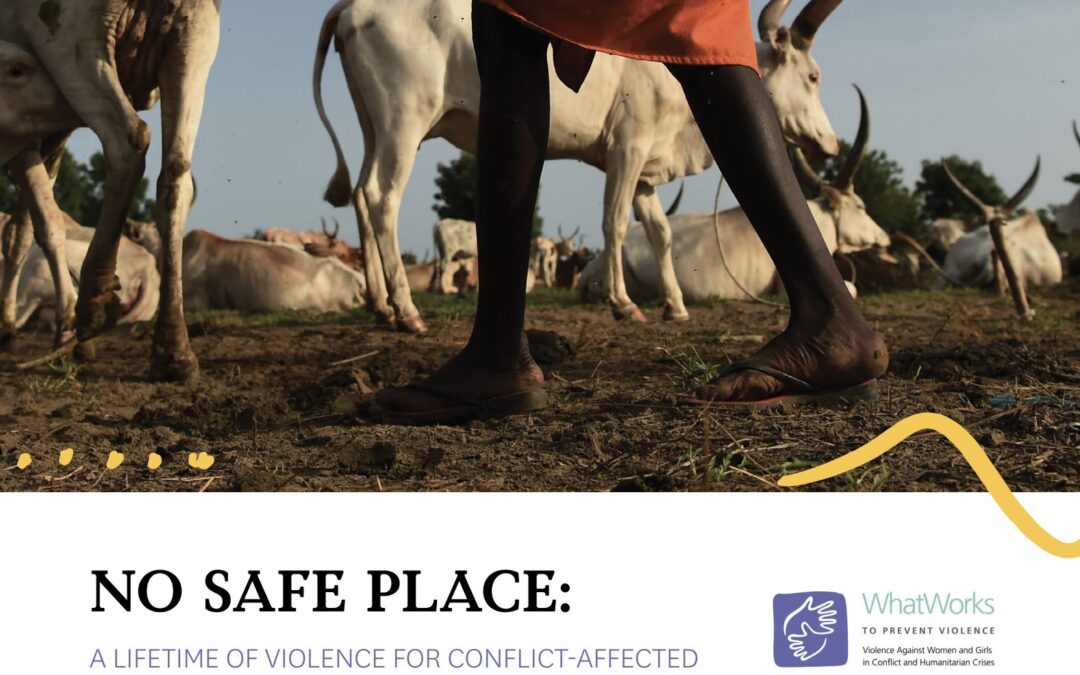
No Safe Place: A Lifetime of Violence for Conflict Affected Women and Girls in South Sudan (Report)
This is the first large-scale research study of violence against women and girls (VAWG) in several areas of South Sudan that have known war and conflict for many years.

Guidelines for reporting violence against women
Guidelines for evidence-based media reporting on violence against women and their children. Australian National reporting guidelines available. Victorian (state of Australia) reporting guidelines also available.
